The Sands of Mata Nui
PIKARI
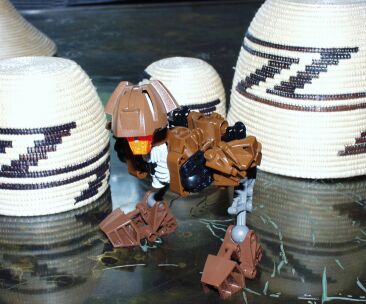
A species of stocky, flightless birds, Pikari live in small flocks scattered across
the sandy plains of northern Mata Nui. Pikari are omnivorous, feeding mostly on dry
desert scrub, but happy to snap up the odd small lizard or large insect that they
come across. Each Pikari has its own distinct call, an arrangement of soft, flute-like
whistles which on still days carry hauntingly across the dunes.
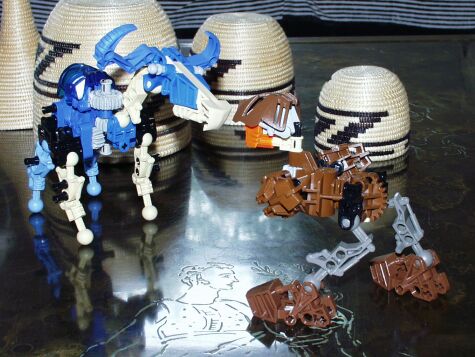
Pikari are not easily spooked and can outrun most local predators, but in a pinch
will kick out with their hoof-like feet and use their strong beaks - not especially
sharp, but powerful enough to crack the hulls of even the toughest stone-seeds -
to defend themselves and their flock from dangers.
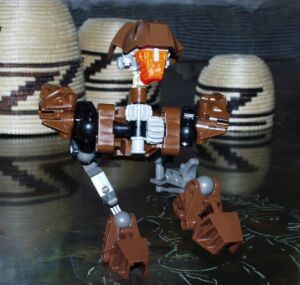
Mature Pikari develop a bright orange throat pouch, which they flash at prospective
mates during seasonal courtship dances. A brooding Pikari will lay two to three
large eggs in a patch of sun-warmed sand. Members of the flock take turns perching
over the eggs and standing guard in a watchful circle around the nesting grounds.
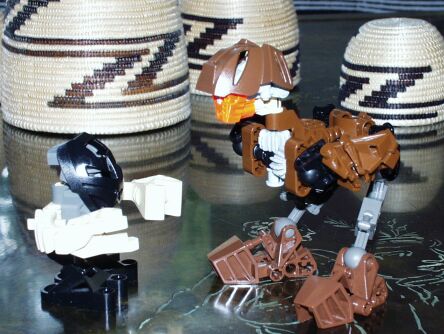
Strong long-distance runners, Pikari are generally tolerant of riders.
The Po-Koro Tohunga have discovered that when they feed certain harmless
bioluminescent plants to the birds, their throat pouches begin to emit
a soft glow. This makes nighttime travel much easier, but increases
the risk of attracting the attention of Rahi or other perils of the desert.
Pikari swallow small stones for their internal crops. A Pikari-rider will often
carve a unique stone for his or her mount, presenting it to the bird with great
ritual and ceremony. These ornate carvings are held to symbolize the bond between
steed and rider, and a Po-Koro rider will never willingly abandon a bonded Pikari.
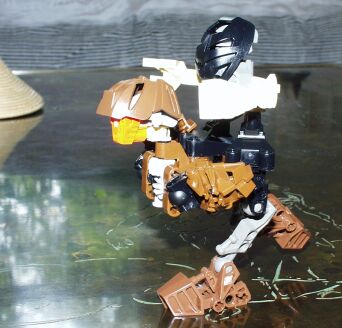
.
.
.


